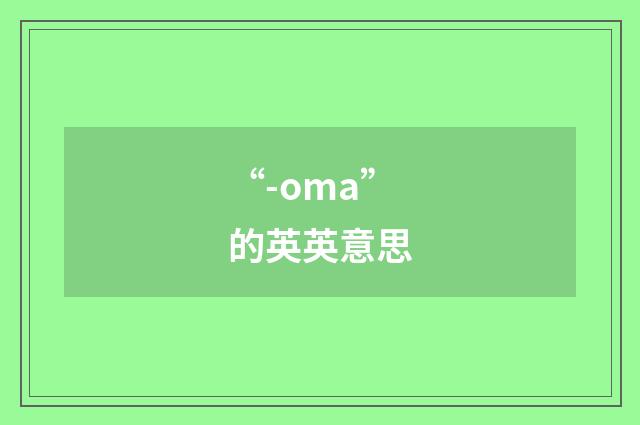| 单词 | -oma |
| 释义 | -oma
terminal element repr. Gr. -ωµα, in which ω repr. ω (or ο) in the parent word (usu. a vb.) and -µα is a Gr. suffix forming neut. ns., exemplified in Eng. words adopted from the Gr. such as carcinoma, coloboma, derma, diploma, eczema, glaucoma, phyma, plasma, sarcoma, trachoma, and in words on Gr. analogy such as lipoma. In Bot. -oma has usu. been anglicized to -ome. In Med. the examples of sarcoma (17th c. in English) and carcinoma (18th c.) have been taken as types on which to base new names of neoplasms and other localized swellings, -oma († -ome) being used as a suffix denoting ‘tumour, growth’ (cf. also Gr. ὄγκωµα swelling): e.g. fibroma († fibrome), cementoma, oligodendroglioma, tuberculoma († tuberculome). |

英语词典包含277258条英英释义在线翻译词条,基本涵盖了全部常用单词的英英翻译及用法,是英语学习的有利工具。
相关内容11:
相关热词搜索:oma英英词典英英释义英语词汇意思用法释义英语
